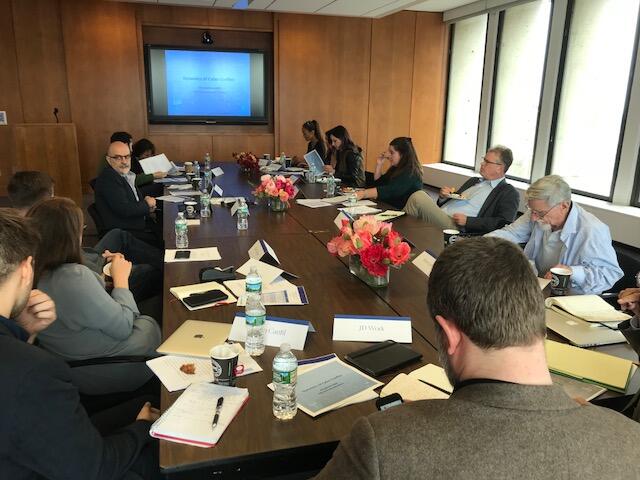
In the Room Where Cybersecurity Policy Happens

The names around the conference table in Columbia University’s International Affairs building on September 10 read like a book list from an advanced course on national security strategy.
More than a dozen in total, these scholars, former diplomats, military service members, and analysts had gathered to workshop the latest ideas and policy alternatives for the defining domain of 21st-Century warfare: cyberspace.
Robert Jervis was there, the sort of political scientist who wins awards for helping prevent nuclear war. So was Rose McDermott, whose pioneering research untangles the very human, psychological roots underpinning politics and violence.
There were also young, wave-making scholars, at the table, too: Erica Borghard, who directs the Grand Strategy Program at the United States Military Academy at West Point, and Nadiya Kostyuk, whose work on cybersecurity policy is backed by the influential Carnegie Corporation.
For most of the day, the group presented and discussed the results of thousands of hours of collective research, probing topics like how laws deter cyber attacks, and the ways emotion plays a role in digital warfare.
Their inquiry, which spanned most of the afternoon, wasn’t just an academic exercise. It was national security policy in the making.
“This is something we've done several times over the last year, and our workshops have influenced policy at the highest levels—most visibly, the USCYBERCOM command vision and the recent DHS National Cybersecurity Strategy,” said Thomas Lind, a cybersecurity research associate at Columbia University’s Saltzman Institute for War and Peace Studies who helped organize the workshop.
Backed by the Department of Defense’s Minerva Initiative, the workshop’s purpose was to link the academic work produced by scholars to government policymakers.
— Dominick Tao MPA ’18